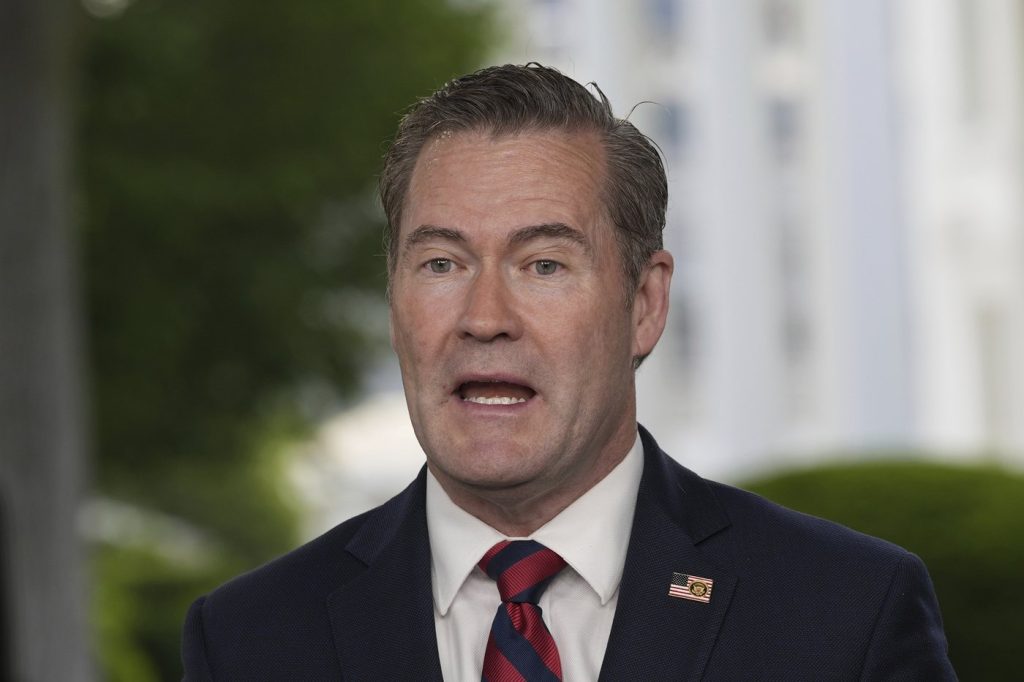In recent developments within President Donald Trump's administration, diplomacy is being framed not only as a form of soft power but also as a method of providing softer landings for officials who have experienced tumultuous tenures. Notably, National Security Adviser Mike Waltz was nominated as United Nations ambassador following a significant blunder involving a journalist in an encrypted chat about military plans. Similarly, IRS Commissioner Billy Long has been appointed ambassador to Iceland after straying from the administration's messaging just two months into his role.
Additionally, Trump appointed State Department spokesperson Tammy Bruce as deputy representative to the UN, after she struggled to integrate with Secretary of State Marco Rubio's team. These appointments can be interpreted as consolation prizes, enabling these officials to remain within the administration despite previous rocky experiences. Unlike his past leadership style showcased on reality television, where he would fire subordinates, Trump seems to be favoring a more forgiving approach by allowing his loyalists to stay on board.
Former national security adviser John Bolton, now a critic of the administration, remarked that it’s “not like ‘The Apprentice.’” He noted that Trump’s initial term featured numerous firings and high staff turnover, driven by his inexperience and reliance on others' recommendations. In contrast, his second term has fewer prominent departures, with a focus on maintaining a loyal team.
The roles of ambassadors are determined at the president's discretion, often serving as rewards for significant contributors to the president’s campaign. White House spokesperson Anna Kelly emphasized the honor of representing the United States in these roles, highlighting the loyalty of Waltz, Long, and Bruce to Trump’s "America First" agenda.
Waltz faced scrutiny after accidentally adding an April article editor to a private military planning chat. Initially supportive, Trump later announced Waltz’s reassignment to the UN but with an optimistic twist, suggesting it was a celebration of his service. Vice President JD Vance defended the move, suggesting it was not a firing, asserting that Trump typically does not offer Senate-confirmed positions as rewards for firings.
Bruce’s transition to the UN occurred under ironic circumstances; she learned of Waltz’s removal during a press briefing. Although a former Fox News contributor, Bruce faced challenges, including a reduction in the frequency of State Department briefings. Even so, Trump praised her performance and deemed her an excellent representative for the UN.
Long, the former IRS commissioner, faced his own challenges, being the shortest-serving appointee confirmed by the Senate in the role. He contradicted the administration on several occasions, and after being designated for Reykjavik, he expressed excitement for his new assignment.
Not all transitions are celebrated openly, as exemplified by Morgan Ortagus, a former State Department spokesperson whose brief stint as a special adviser to the UN was marked by skepticism regarding her effectiveness. Trump’s past statements indicated doubts about her fit for the role, highlighting the uncertain nature of these new positions.
Overall, these recent appointments appear to be part of Trump’s strategy to maintain a cohesive and loyal team, even in the face of past difficulties. This shift in approach from firings to reassessments reflects the changing dynamics within the administration, as Trump seeks to consolidate his support base while navigating the complexities of foreign diplomacy.










